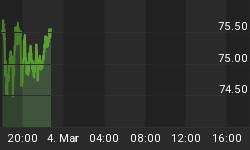In response to Chicago Suburbs $1 Million+ Home Sales "Not Totally Dead" Yet; Rush for the Exit, I received emails from Maryland and Texas about slowdowns in those states.
Anecdotes do not constitute "data" but all three stories (counting Chicago) show significant weakness at the high-end in widely varying areas with distinct economic backdrop differences.
Paul from Maryland
Mish, I live in the Howard County, Maryland. It's the 4th wealthiest county in the US. We recently had a presentation by a Realtor on the state of the market. It's still a very strong seller's market in the $600K and below range. Inventory is around 2.5 months on a 3 month rolling average basis.
However, the high end is abysmal. Houses asking $2.5M+ are not selling at all. There are 20 on the market with no sales. In the $1M to $2.5M category, 293 are up for sale, with only 27sold, a weak showing.
A friend of mine who lives in a high end area told me about a neighbor who had asked $1.5M and sold for $850K. The Realtor opined that that a recession next year was likely.
Paul
Aaron From Texas
Hello Mish,
Good article on Chicago. We are seeing a similar slowdown on the high end here in Houston, particularly in the Energy Corridor (West Houston). Right now Texas has a huge problem with skyrocketing residential property taxes. I was on the local news last night talking about the City of Sugar Land's latest exercise in corporate welfare as they gifted about $8 million in new tax incentives to Schlumberger. That's $8 million that will be strapped to the backs of homeowners who have no real access to due process to fight our corrupt appraisal districts. It's actually fairly easy for corporations to get a nice discount from the CADs because Texas is a non-disclosure state, and the CADS get roughed up when they are sued in district court.
Aaron Layman
Oh Those CADs
I gave Aaron a call. "CAD" stands for County Appraisal District. It seems the CADs go way out of their way to appraise business property low and home prices high. They can get away with it because sale prices are not disclosed.
Aaron has his own real estate business and a blog. He wrote about the Schlumberger deal recently in Sugar Land Homeowners Get Steamrolled.
In a second email Aaron wrote ...
Hi Mish,
It was a pleasure talking to you. Thanks for the call. We have a "Sugar Land" TX, but not a "Sugar Town". My market here in Katy is more directly tied to the Energy Corridor. We have seen a very noticeable drop in new construction sales here this year in Katy and West Houston. Builders were chasing the high end of the market, and now those homes priced at $500,000 and higher are not selling nearly as well. What a surprise!
Cross Creek Ranch was one of the nation's hottest spots for new home construction in 2013 and the first half of 2014. Now things are rolling over. 6 of the last 7 months have resulted in negative YoY prices. One of my clients was able to get $119,000 off of the original list price for a new spec home.
For additional background, I am not just a licensed, practicing real estate broker. I am also a licensed educator and frequent blogger. I enjoy writing, and I have become fascinated with the crony capitalism from the Federal Reserve and various levels of government. Our financial markets are now a comedic farce, similar to our warped & manipulated housing market. It is an absolute travesty what is happening in this country, and I am continually amazed at the lengths our politicians and apologists will go to as they attempt to whitewash all of the fraud that is taking place and keep corporate criminals out of jail.
Interesting times!
Best Regards,
Aaron
Sugar Land vs. Sugar Town
That's the kind of honesty that's going to get an endorsement from me. If you are in the Texas energy belt looking to buy or sell, Aaron appears to be a good source.
I had mistakenly referred to Sugar Land as Sugar Town in one of our email exchanges. Thus the correction, with an accompanying musical Tribute
Where Next?
High-end rot is apparent in Howard County Maryland, the Texas energy belt, and Chicago suburbs.
Where's the next high-end bust? I actually suspect they are happening all over the place. And if so, recall my earlier statement that the economy rots from the periphery to the core but home price rot starts at the high-end and works its way lower.
I propose housing is not as strong as the bulk of economists believe it is.















